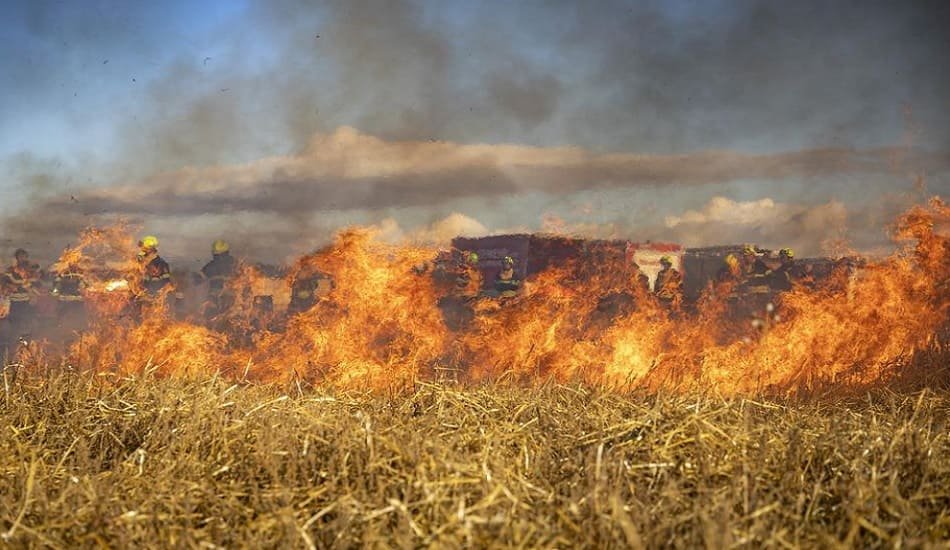The Centre deploys officials to Punjab to raise awareness to reduce stubble burning.
As paddy harvesting begins, the Centre has ordered the Punjab government to draft a comprehensive action plan at the micro level to effectively reduce stubble burning. The high level of air pollution in the national capital region of Delhi during the winter has become an annual occurrence, owing in part to agricultural residue burning in Punjab and Haryana.
According to sources, the Centre has deployed Abhilaksh Likhi, an additional secretary in the Agriculture Ministry, to Punjab, and other officials may travel on a regular basis.
During his visit, Likhi participated in a field-level demonstration program on crop residue management (CRM) at Rangian village in the SAS Nagar district of Punjab, an official release said.
Also Read | India eliminate stubble burning issue; bio-enzyme, breaks straw, converts into fertilizer.
He stated that states (including Haryana and Uttar Pradesh) should establish a mechanism to ensure effective machine utilisation, promote the use of bio-decomposers in conjunction with CRM machines, and promote ex-situ utilisation of straw by mapping demand from adjacent industries such as biomass-based power plants and bio-ethanol plants.
He requested that the Punjab government conduct Information, Education, and Communication (IEC) operations to raise farmer awareness through intensive campaigns in electronic and print media, social media, and Kisan Melas.
The total funds available with the States and the Indian Council of Agricultural Research (ICAR) for the period 2022–23 is ₹ 916 crore, which is sufficient to carry out the programme to reduce stubble burning events. Punjab has ₹ 240 crore, Haryana has ₹ 191.53 crores, and Uttar Pradesh has ₹ 154.29 crores, with ICAR receiving ₹ 14.18 crore.
The Centre has granted ₹ 2,440 crores over the last four years, and these states have distributed around 2.07 lakh machines to farmers and Custom Hiring Centres (CHCs). Pusa Decomposer, an ICAR-developed microbial consortium of fungal species (in liquid and capsule forms), has been shown to be effective for quick in-situ decomposition of paddy straw.
In 2018-19, the Centre launched the Crop Residue Management (CRM) plan, which provides farmers with 50% financial aid for the procurement of CRM machinery and cooperative societies, FPOs, and panchayats with 80% financial assistance for the creation of CHCs.
Also Read | Why not use Pusa-Bio Decomposer? Experts divided on cash incentives to farmers.
The Happy Seeder, Super Seeder, Smart Seeder, zero till seed-cum-fertiliser drill, Mulcher, Paddy Straw Chopper, hydraulically reversible mould board plough, crop reapers, and reaper binders are among the machines promoted by the scheme.
Last year, 82,533 burning incidents were reported in the three states between September 15 and November 30, a 7.71 percent decrease from the previous year.















Add Comment